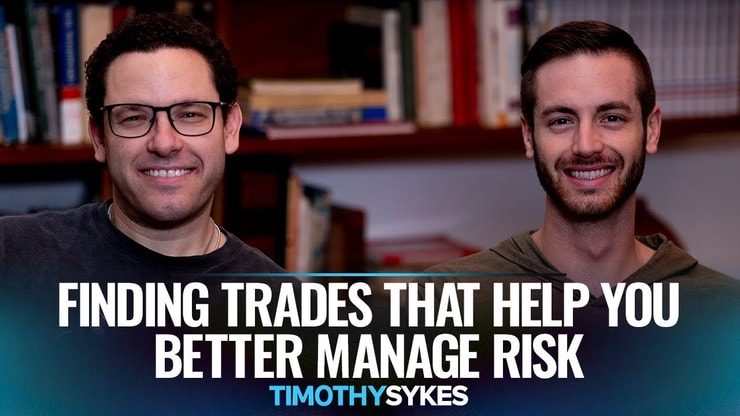Richard Dennis is a legendary figure in the world of trading. Often referred to as the “Prince of the Pit,” Dennis made his mark on the Chicago Mercantile Exchange in the 1970s and 1980s.
Dennis’ claim to fame was turning a modest sum—reportedly around $1,600—into a fortune worth hundreds of millions through trading commodities.
This article gives an in-depth look at Richard Dennis’s trading legacy and strategies, and how you can apply these insights to your own trading journey.
I’ll answer the following questions:
- Who is Richard Dennis?
- Is Richard Dennis legit or a scam?
- What trading strategy is Richard Dennis famous for?
- How did Richard Dennis get started in trading?
- What were the early trading successes of Richard Dennis?
- Which stock picks are on Richard Dennis’ watchlist?
- What is Richard Dennis’ net worth?
- Does Richard Dennis offer a trading course?
Let’s get to the content!
Table of Contents
Who Is Richard Dennis?
Dennis became famous for his systematic approach, emphasizing discipline and strict adherence to trading rules. As a trader and mentor, Dennis impacted many aspiring traders by proving that success in the markets is not about intuition but about having a tested strategy and sticking to it.
Is Richard Dennis Legit or a Scam?
Richard Dennis is as legitimate as they come in the trading world. His achievements were well-documented during his active trading years.
Dennis took an experimental approach to prove that trading could be taught. This led to the famous Turtle Trading experiment, where he trained a group of novice traders to follow his trend-following system. The success of the Turtle traders cemented Dennis’s status as a trading mentor.
What Trading Strategy Is Richard Dennis Famous For?
Dennis is best known for his Turtle Trading experiment, where he proved that trading success could be taught. His strategy involved trend following—capitalizing on long-term market trends in commodities, currencies, and financial futures.
Dennis emphasized strict risk management and disciplined position sizing, which allowed him and his students, known as the “Turtles,” to achieve remarkable success in the markets.
Every successful trader understands risk and how to manage it.
To learn how to master this concept for yourself, watch my video below.
Commodity Trading
Richard Dennis didn’t build his fortune on Wall Street, but primarily through commodity trading. He focused on markets like grains, currencies, and financial futures.
His strategy involved identifying and riding trends in these volatile markets. Dennis didn’t rely on market predictions or gut feelings. Instead, he used a systematic approach to follow market trends, entering trades when they showed signs of a breakout.
Richard Dennis’s success in commodity trading wasn’t unique to him alone. Takashi Kotegawa is another trader who made significant profits by implementing disciplined strategies in the financial markets.
While Dennis focused on trend following, Kotegawa specialized in short-term trading, demonstrating that different methodologies can yield success in trading.
The key takeaway from both traders is the importance of a systematic approach. Both Dennis and Kotegawa illustrate that consistency, risk management, and a well-defined strategy are crucial for thriving in volatile markets.
Read my article to learn more about Takashi Kotegawa’s trading approach.
Turtle Trading
Dennis’s most famous contribution to trading is the Turtle Trading experiment. He believed that trading success could be taught, so he set out to prove it by training a group of novices, who came to be known as the Turtle Traders.
The Turtles followed a strict set of rules for entering and exiting trades, managing risk, and position sizing. The core of Turtle Trading was trend following—identifying long-term trends in markets like commodities and futures, then riding those trends for as long as they were profitable.
This trading system emphasized discipline, risk management, and avoiding large losses—principles that resonate with the trading psychology I teach my students.
In comparison to Dennis, the legendary trader Jesse Livermore had a different, more instinctive approach. Livermore’s trading career was characterized by sharp intuition and understanding market psychology, whereas Dennis emphasized rules-based trend following.
Despite their contrasting methods, both achieved remarkable success by adhering to their chosen strategies. Their stories show that while the paths to trading success may vary, the core principles of discipline and risk management remain constant.
Check out my article which discusses Jesse Livermore’s trading philosophy.
How Did Richard Dennis Get Started?
Richard Dennis’s journey began on the floors of the Chicago Mercantile Exchange. He was fascinated by the movements of prices and the potential profits that could be made with the right strategy. Starting with a small account of just $1,600, Dennis learned quickly about the importance of position size and risk management.
He carefully analyzed the markets, using financial analysis to make calculated moves that allowed his small capital to grow exponentially. His early days were filled with valuable lessons about discipline and market psychology, principles that are important in any trading education.
As a young trader, Dennis was meticulous about recording his trades and refining his strategies. He understood that keeping losses small and letting winning positions run was the key to growing his account.
Dennis’s story shows that even with a small starting amount, success is possible through disciplined execution, continuous learning, and a willingness to adapt to market conditions. His approach serves as a reminder that profitable trading is not about hitting home runs but about consistent execution of a well-thought-out strategy.
More Breaking News
- Canaan’s Stock Soars Amidst Exciting Market Developments: Is Now the Time to Invest?
- Tilray Brands’ Surprise Push: Are New Launches Driving Stock Gains?
- Bold Moves by Intuitive Machines: Analyzing the Soaring Momentum
What are the Early Trading Successes of Richard Dennis?
Dennis began his trading career on the floors of the Chicago Mercantile Exchange. Starting with very little capital, just $1,600, he quickly turned it into a substantial fortune by the time he was in his 20s. His early success came from trading commodities, particularly soybeans, where his disciplined approach to trend following paid off.
He was known for his ability to take calculated risks, allowing his winning trades to run while cutting his losses short. This kind of disciplined trading is something every trader needs to master to achieve consistent success.
To master a disciplined trading approach, you need a robust platform to monitor positions, set alerts, create charts, and more.
When it comes to trading platforms, StocksToTrade is first on my list. It’s a powerful day and swing trading platform that integrates with most major brokers. I helped to design it, which means it has all the trading indicators, news sources, and stock screening capabilities that traders like me look for in a platform.
Grab your 14-day StocksToTrade trial today — it’s only $7!
Which Stock Picks Are on Richard Dennis’ Watchlist?
While Dennis was primarily known for commodities trading rather than stock picking, his approach to trading was adaptable to various markets, including stocks. His method focused on identifying strong trends, regardless of the market.
Although Dennis didn’t publicly disclose a watchlist of stock picks, his followers and students would look for markets showing clear, long-term trends. His philosophy wasn’t about specific stock picks but about the method—finding strong, established trends and riding them.
What Is Richard Dennis’ Net Worth?
At the peak of his trading career in the 1980s, Richard Dennis reportedly amassed a fortune worth over $200 million. His wealth came from his success in commodities trading and the systematic approach he employed.
While market conditions have changed since Dennis’s heyday, his legacy continues to influence traders around the world. As with any trader, net worth can fluctuate with market changes, but Dennis’s impact and contributions to trading strategies remain invaluable.
Trading isn’t rocket science. It’s a skill you build and work on like any other. Trading has changed my life, and I think this way of life should be open to more people…
I’ve built my Trading Challenge to pass on the things I had to learn for myself. It’s the kind of community that I wish I had when I was starting out.
We don’t accept everyone. If you’re up for the challenge — I want to hear from you.
Apply to the Trading Challenge here.
Trading is a battlefield. The more knowledge you have, the better prepared you’ll be.
Is trend following, which is Dennis’ methodology, part of your trading toolkit? Write “I’ll keep it simple Tim!” in the comments if you picked up on my trading philosophy!
FAQs About Richard Dennis
How Old is Richard Dennis?
Richard Dennis was born on January 9, 1949, which makes him a seasoned veteran in the trading world. Age brings experience, and Dennis used his years in the markets to refine his trading strategies.
Does Richard Dennis Have a Blog or Website?
Richard Dennis is more of a private figure when it comes to modern digital platforms. He hasn’t maintained a blog or website like many contemporary traders. His teachings and strategies are mostly shared through the legacy of his Turtle Trading experiment and the writings of those who studied under him.
Does Richard Dennis Have a TikTok, YouTube, or IG Account?
Dennis isn’t known for engaging with social media platforms like TikTok, YouTube, or Instagram. His era was different, and his reputation was built through direct trading success and mentorship rather than through digital content. While today’s traders often use these platforms to share insights, information, and strategies, Dennis’s legacy continues through the principles he taught rather than social media presence.
Does Richard Dennis Offer a Course?
While Richard Dennis didn’t offer a formal trading course in the way it’s done today, his Turtle Trading experiment served as an intensive, real-world course for the selected group of Turtle Traders. The rules and principles he taught them became the foundation of the Turtle Trading strategy, which has been documented and shared by various traders over the years.



Leave a reply